
Death Penalty, India's Collective Conscience and Durkheim Academike
Durkheim believed that society exerted a powerful force on individuals. People's norms, beliefs, and values make up a collective consciousness, or a shared way of understanding and behaving in the world. The collective consciousness binds individuals together and creates social integration. For Durkheim, the collective consciousness was.
.jpg)
Émile Durkheim and the Collective Consciousness of Society (Paperback
The concept of a 'conscience collective' (collective consciousness) was first proposed by French sociologist Émile Durkheim in 1893, as a shared understanding of morals and social norms in groups. Durkheim analysed how societies progressed through certain stages of development.

PPT Emile Durkheim PowerPoint Presentation, free download ID1901778
One of the most important contributions to the discipline of sociology was Emile Durkheim's theoretical discussion of the collective conscience. For Durkheim, it was the collective conscience—the common ways of defining the world, as well as the common moral bond between people—that provided the initial foundation for social solidarity. It was the glue that kept society organized and.
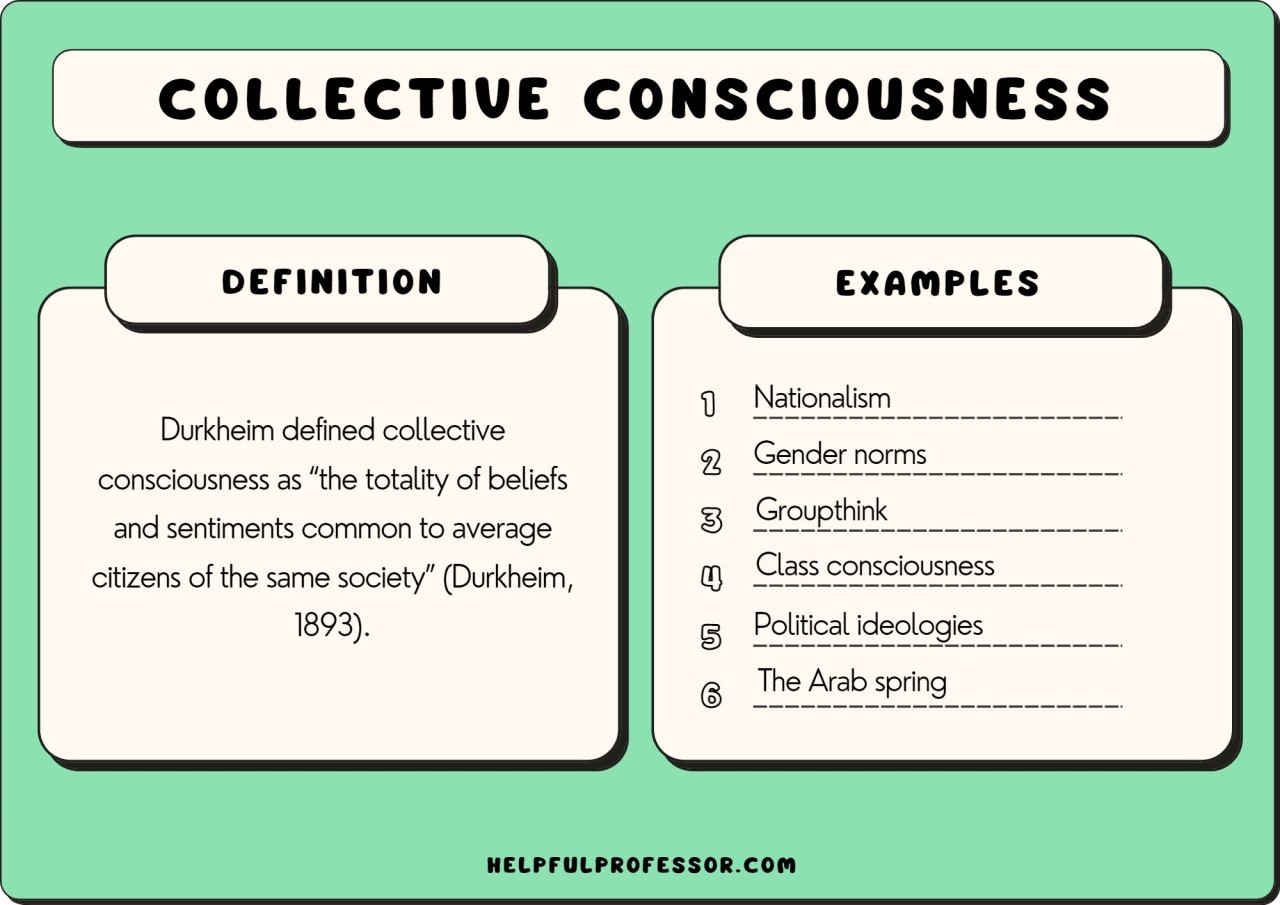
Collective Consciousness (Definition and 12 Examples)
Defined by Émile Durkheim as 'the body of beliefs and sentiments common to the average of members of a society', it comprised a form and content which varies according to whether society is characterized by mechanical or organic solidarity. In the former, the collective conscience is extensive and strong, ranging far and wide into people's.
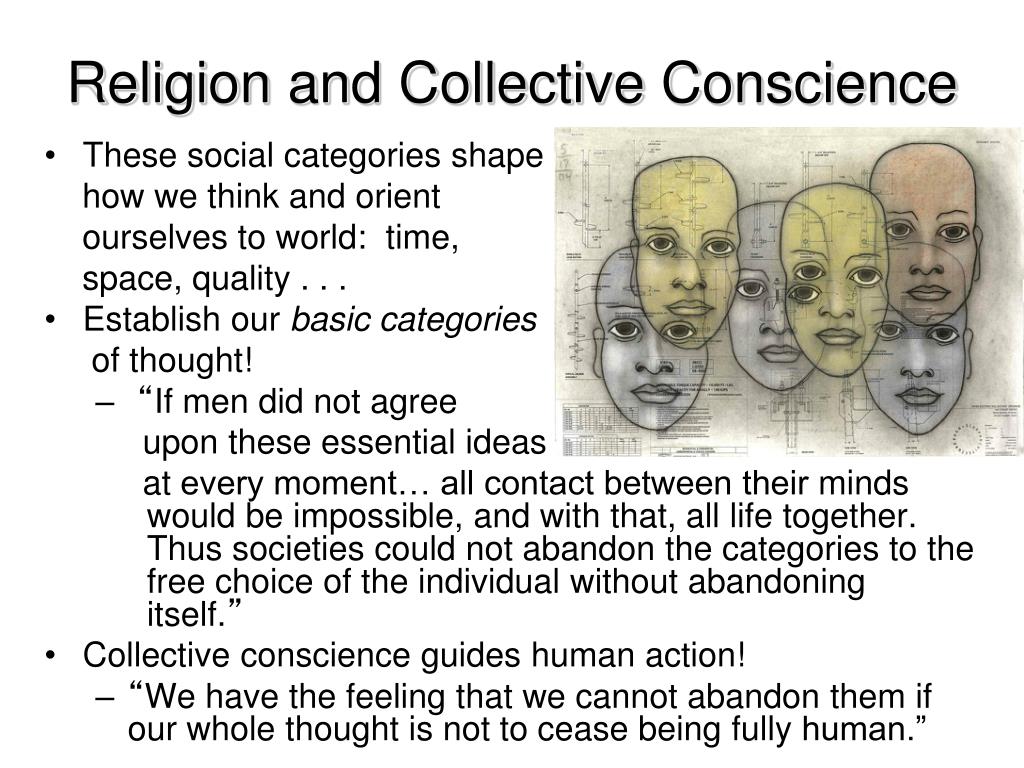
PPT The Sociology of Emile Durkheim PowerPoint Presentation, free
As we have seen the only thing that separates Durkheim's concept of the collective consciousness of society from a more conventional discussion of morality is the emphasis that he places on the all-important social dimension of this question.

Collective Consciousness THE COMPOUND GALLERY
This paper gives an overview of Durkheim's ideas concerning knowledge in the broad sense in the period indicated It shows that the notion of collective consciousness was abandoned, and the principle of morphological determinism was retained, largely for rhetorical purposes.
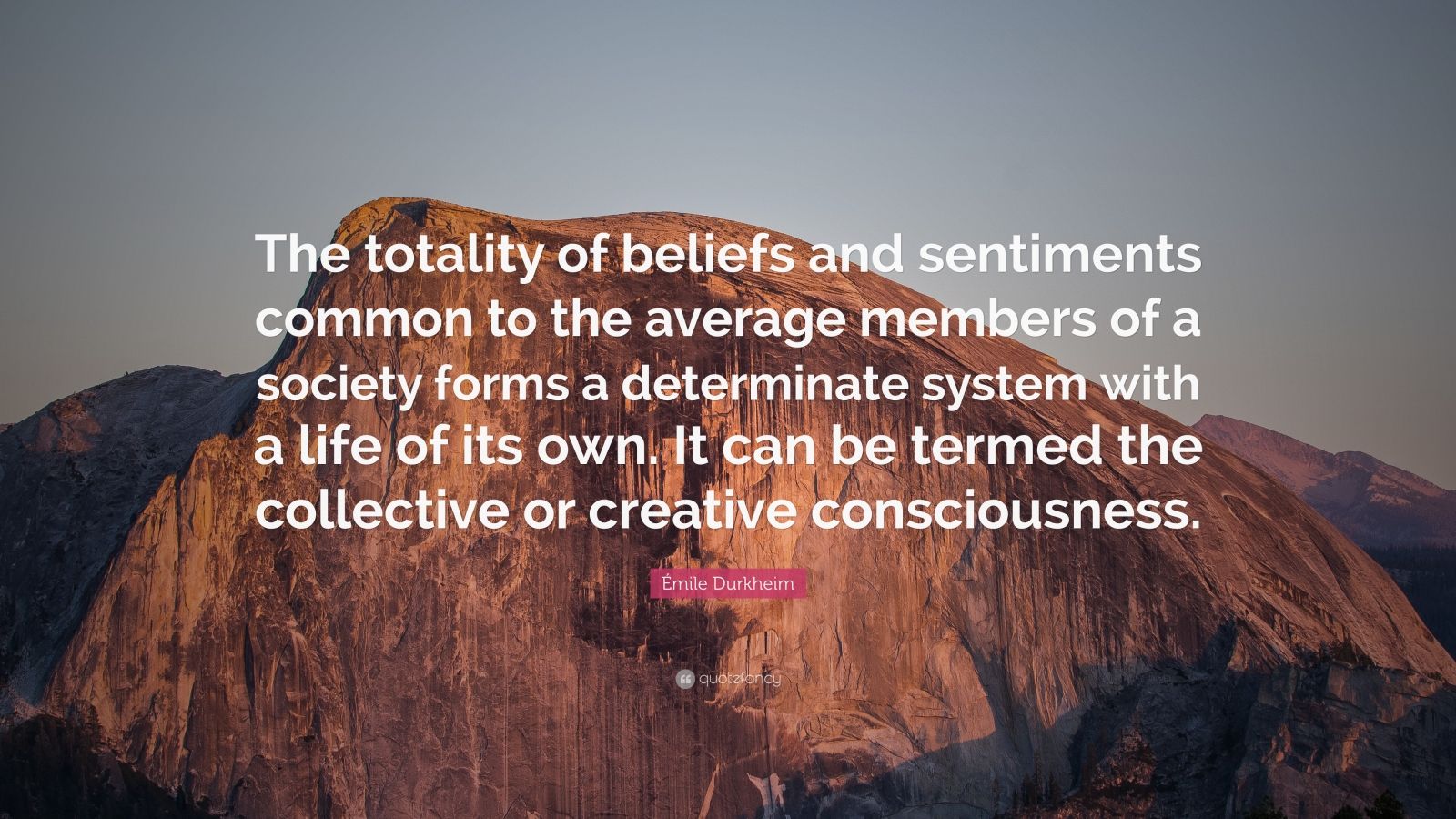
Émile Durkheim Quote “The totality of beliefs and sentiments common to
Collective consciousness, collective conscience, or collective conscious ( French: conscience collective) is the set of shared beliefs, ideas, and moral attitudes which operate as a unifying force within society. [1] In general, it does not refer to the specifically moral conscience, but to a shared understanding of social norms. [2]

EMILE DURKHEIM Theory of Collective Conscience. YouTube
The book is addressed to scholars and students in sociology and in phenomenological philosophy. It presents the work of Durkheim in a new light and discusses the prevailing interpretations in the collective intentionality approach. It also provides a fresh conception of collective consciousness which illuminates features unattended by the traditions initiated by John Searle, Dan Zahavi and the.

PPT SOC4044 Sociological Theory Emile Durkheim PowerPoint
Durkheim first introduced his theory of the collective consciousness in his 1893 book "The Division of Labor in Society". (Later, he would also rely on the concept in other books, including "Rules of the Sociological Method", "Suicide", and "The Elementary Forms of Religious Life".

Durkheim and Collective Conscience YouTube
Some terms that he coined, such as "collective consciousness", are now also used by laypeople. [6] Biography Early life and heritage David Émile Durkheim was born 15 April 1858 in Épinal, Lorraine, France, to Mélanie (Isidor) and Moïse Durkheim, [7] [8] coming into a long lineage of devout French Jews.

PPT Emile Durkheim PowerPoint Presentation, free download ID1191341
Émile Durkheim and the Collective Consciousness of Society Search within full text Get access Kenneth Smith Publisher: Anthem Press Online publication date: October 2014 Print publication year: 2014 Online ISBN: 9781783082384 Subjects: Area Studies , South Asian Government, Politics and Policy , Asian Studies , Politics and International Relations
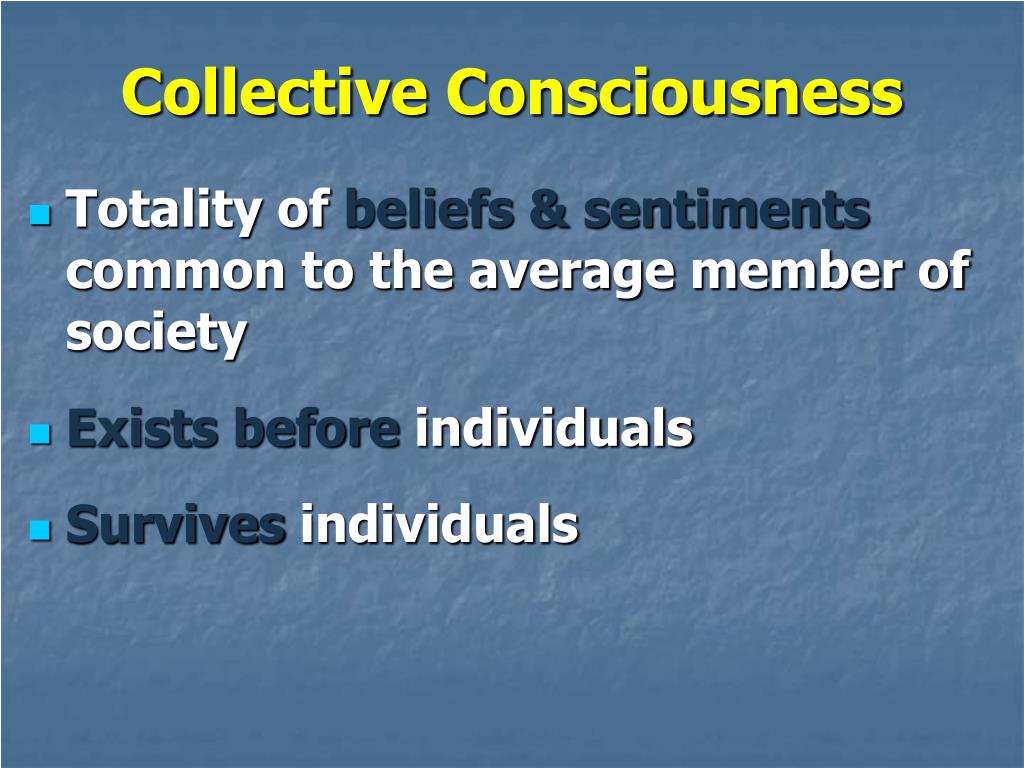
PPT Emile Durkheim (18581917) PowerPoint Presentation, free download
The concept of a ' conscience collective ' (collective consciousness) was first proposed by French sociologist Émile Durkheim in 1893, as a shared understanding of morals and social norms in groups. Durkheim analysed how societies progressed through certain stages of development.
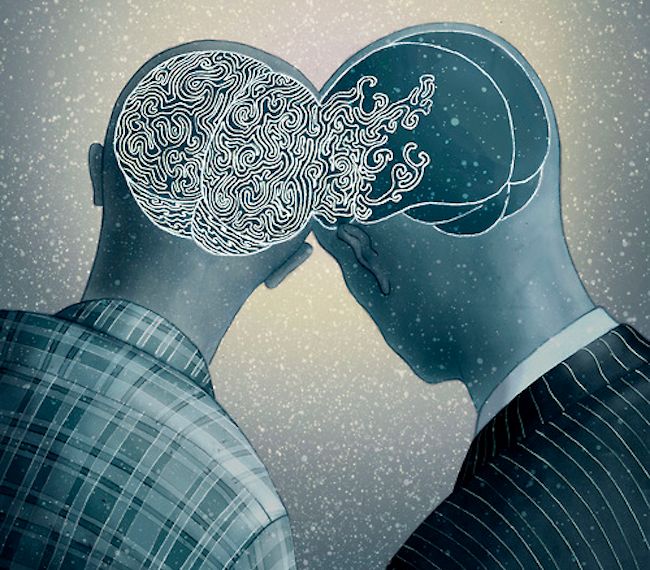
Creating a Shared Understanding How to Tap into the Collective
This concept, commonly referred to by sociologists as the "collective consciousness" or "conscience collective," exemplifies the crucial role that the social plays in human behavior. While theorists disagree about the ultimate role of the collective consciousness in Durkheim's overall work, the idea of such an entity still provokes.
.jpg)
Émile Durkheim and the Collective Consciousness of Society (Paperback
Emile Durkheim Collective Consciousness Theory by kdkasi | Jun 28, 2019 | Emile Durkheim Collective Consciousness Theory Emile Durkheim is among one of the founding fathers of sociology. In 1983, he presented and pioneered the concept of collective consciousness in his book "The Division of Labor in Society".
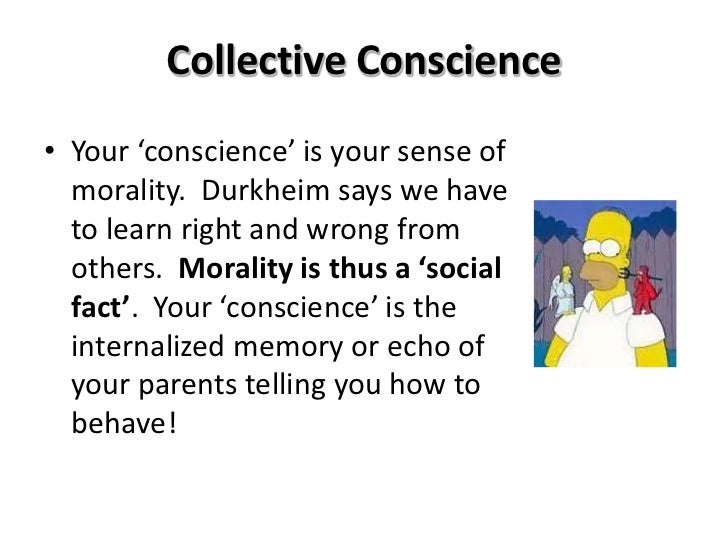
Emile Durkheim
In Part I of this book I have attempted to provide an authoritative account of Durkheim's usage of the concept of the (or as I think we may now say, a) common or collective consciousness of society. In order to do this I have outlined in some detail Durkheim's general concept of morality, as explained by him in his still relatively little.

PPT Emile Durkheim (18581917) PowerPoint Presentation, free download
Durkheim's Concept of the Collective Consciousness as a 'Social Fact' Published online by Cambridge University Press: 05 October 2014 Kenneth Smith Chapter Get access Share Cite Summary